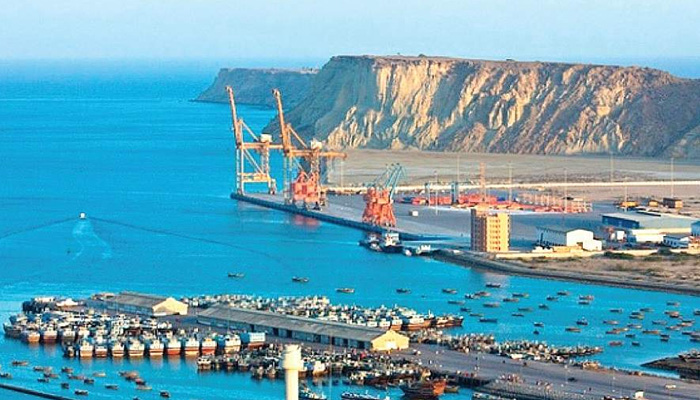Gwadar Port can be advantageous to Saudi Vision 2030: Chinese media
There have been solid indications that Saudi Arabia is interested in investing in the port city of Gwadar and other projects under the China-Pakistan Economic Corridor (CPEC).
BEIJING: There have been solid indications that Saudi Arabia is interested in investing in the port city of Gwadar and other projects under the China-Pakistan Economic Corridor (CPEC).
It is quite beneficial for Saudi Arabia to participate in the mega-project as it helps link its economy with China's and facilitates the successful implementation of Crown Prince Mohammad bin Salman's Vision 2030, according to an article published by China.org.cn on Wednesday.
As part of a holistic plan, one of its main objectives is to increase diversity in the Saudi economy, providing jobs for the Kingdom's young population and modernizing the country.
Launching power plants and energy projects in Gwadar could help diversify the Saudi economy as well as reduce its dependence on oil.
In addition, Saudi Arabia can benefit from the global trade traffic at the port and widen its business opportunities.
In the meantime, the UAE has also been helping provide amenities to locals in Gwadar.
Running a container service connecting the cities of Sharjah, Abu Dhabi and Jebel Ali with Gwadar, the UAE has recently launched the Karachi-Gulf Express.
If the investment plans materialize, the involvement of Saudi Arabia and the UAE would further boost Gwadar's zone of influence and have a positive impact on the global economy in the long run.
China already has excellent relations with these Middle Eastern states and such inclusions work very well both from the geo-economic and geopolitical standpoint.
Though the nature and scope of investment is not confirmed yet, such a trend in investments firmly establishes the viability and feasibility of all other CPEC projects as well and completing the model city of Gwadar is the best way to showcase the entire "flagship corridor."
With the possibility of the inclusion of Saudi Arabia, more Middle Eastern states and African states like the UAE and Egypt could also want to participate in such projects.
Based on the principles of "openness and inclusiveness," such collaborations project the ethos of the Belt and Road Initiative and provide a platform for China as well as other countries located near the routes or "corridors."
Explaining Prime Minister Imran Khan's vision behind giving top priority to the rapid industrialization plan for the port city, the Planning & Development Minister Khusro Bakhtiar said, "We cannot afford to wait any longer as our economy does not have the luxury of time.
Industrialization in this port city is a low hanging fruit, considering its prospect of international connectivity and the suitable cost of transportation."
This one milestone can provide a plethora of opportunities that go with a blue economy and help rescue Pakistan from its economic travails.
Giving Gwadar the level of a "stand-alone" project, preparations are underway to encourage friendly countries to invest in the next phase.
Attaining international levels of development, Gwadar port can kick off full-scale operations and handle 300 million to 400 million tons of load of goods yearly once it reaches complete capacity.
Enabling the largest ships to dock due to the harbor's natural depth and layout, Gwadar would benefit the entire region like no other port.
Improving local infrastructure has also remained the main precondition for making Gwadar an attractive investment destination and showcases the project's immediate value.
Highlighting the location and free-zone potential of the port city as its first priority, a Gwadar Smart City Master Plan is also being discussed.
Providing water, energy, road and railway connectivity are also prerequisites for the feasibility of the project.
Setting the urban development of the city as a short-term target, the planning commissions of both China and Pakistan agreed on developing Gwadar and establishing industries first.
As Zhou Rong from the Chongyang Institute for Financial Studies advised, "The country has to push forward the construction of industrial parks under the CPEC, which can be a driving force for attracting clusters of industries."
-
Security forces gun down 30 terrorists in multiple IBOs in KP: ISPR
-
MQM-P calls for new province in Sindh
-
US report validates Pakistan military edge over India: PM
-
Banned TTP poses serious threat to Pakistan security: UNSC panel
-
CM Afridi clarifies remarks on by-poll after ECP requests army deployment
-
Dubai sees 3.2m Pakistani passengers in 2025 as airport sets new milestone
-
Security forces kill 23 Indian proxy terrorists in KP's Kurram
-
Pakistan to construct island to boost oil exploration: report












